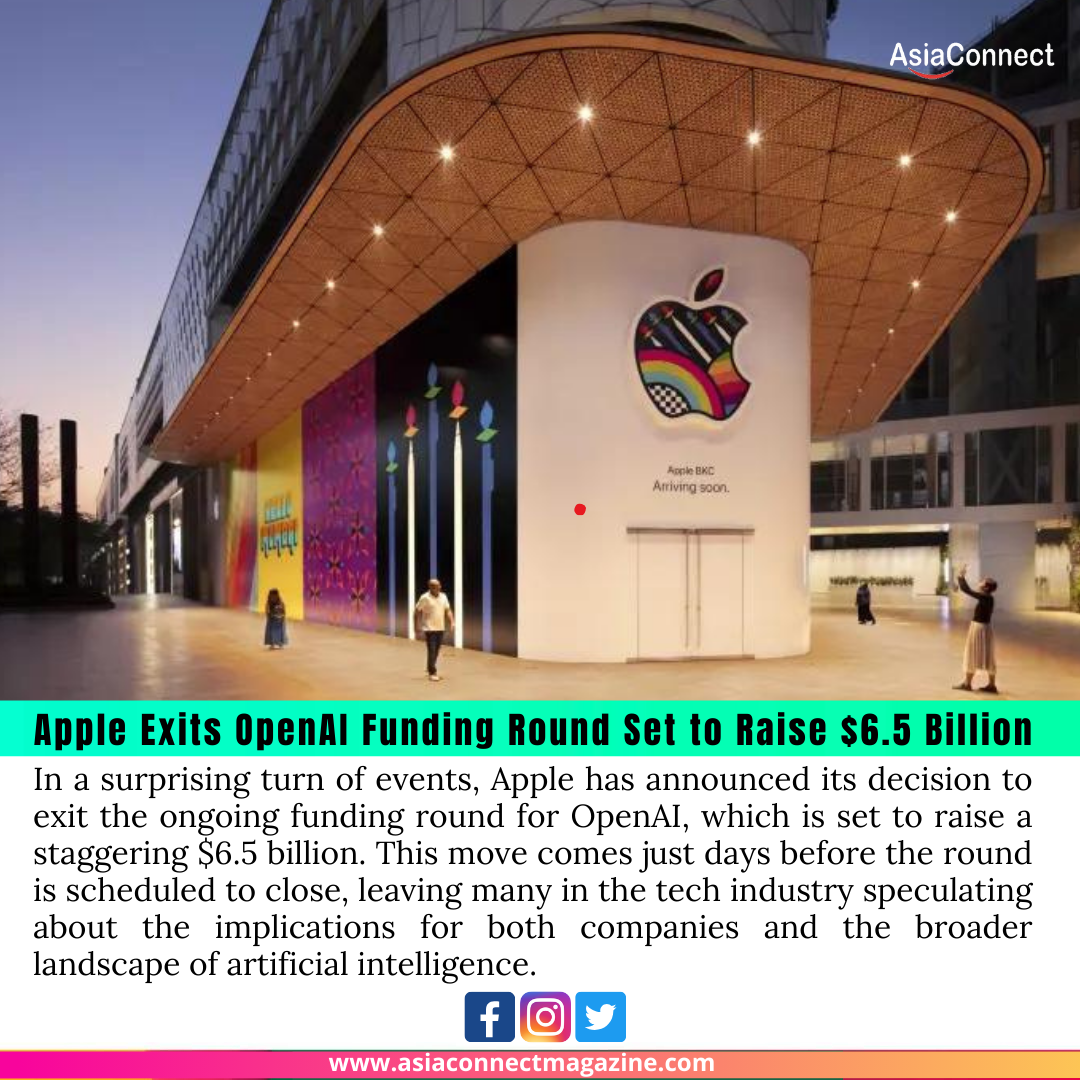In a surprising turn of events, Apple has announced its decision to exit the ongoing funding round for OpenAI, which is set to raise a staggering $6.5 billion. This move comes just days before the round is scheduled to close, leaving many in the tech industry speculating about the implications for both companies and the broader landscape of artificial intelligence.
The Context of the Funding Round
OpenAI, the renowned artificial intelligence research organization, has been at the forefront of developing groundbreaking AI technologies, including the popular language model GPT-3 and its successors. The ongoing funding round aims to bolster OpenAI’s efforts in expanding its research capabilities, enhancing its existing models, and exploring new applications of AI across various sectors.
The $6.5 billion round is critical for OpenAI, as it seeks to compete with tech giants in the rapidly evolving AI market. With significant investments, the organization aims to scale its operations and push the boundaries of what AI can achieve. Investors in this round include a mix of venture capital firms and strategic partners looking to tap into the potential of AI-driven solutions.
Apple’s Strategic Shift
Apple’s decision to withdraw from the funding round raises eyebrows, especially given its history of investing in AI and machine learning technologies. The company has made significant strides in integrating AI into its products and services, from Siri to advanced photo processing capabilities in the iPhone. However, the move indicates a potential shift in Apple’s strategy regarding its AI initiatives.
While the specifics behind Apple’s exit remain unclear, industry analysts suggest several possibilities. One theory is that Apple is reevaluating its investment priorities in the wake of increasing competition in the AI space. The tech giant may be focusing more on its internal AI research and development, seeking to build proprietary solutions rather than relying on external partnerships.
Another possibility is that Apple’s exit is related to concerns about OpenAI’s direction or its alignment with Apple’s values. The tech giant has historically emphasized user privacy and ethical technology use, and any misalignment on these fronts could lead to hesitance in pursuing further investment.
Implications for OpenAI and the AI Landscape
OpenAI’s funding round is pivotal not only for its growth but also for the wider AI ecosystem. The absence of Apple as a backer may alter the dynamics of the round and could impact future collaborations. OpenAI has attracted significant interest from various quarters, and while losing Apple is a setback, the organization is still well-positioned to secure funding from other investors eager to be part of its groundbreaking mission.
Moreover, this development underscores the competitive nature of the AI sector. As companies like OpenAI continue to innovate, established players like Apple must continually reassess their strategies to stay relevant. The evolving landscape presents both challenges and opportunities, and the decisions made by these tech giants will shape the future of AI.
Future Outlook
As the funding round for OpenAI nears its conclusion, all eyes will be on the organization to see how it adapts to the changing environment without Apple’s backing. The success of this round could determine the trajectory of OpenAI’s research initiatives and its ability to remain at the forefront of AI development.
For Apple, the decision to exit this round may signal a broader strategy focused on internal development. However, it also raises questions about its future collaborations in the AI space. The tech world will be watching closely as both entities navigate their paths in this increasingly competitive arena.
In conclusion, Apple’s withdrawal from the OpenAI funding round is a significant development that could reverberate through the tech industry. As both companies recalibrate their strategies, the implications for AI innovation and investment are likely to be profound.





